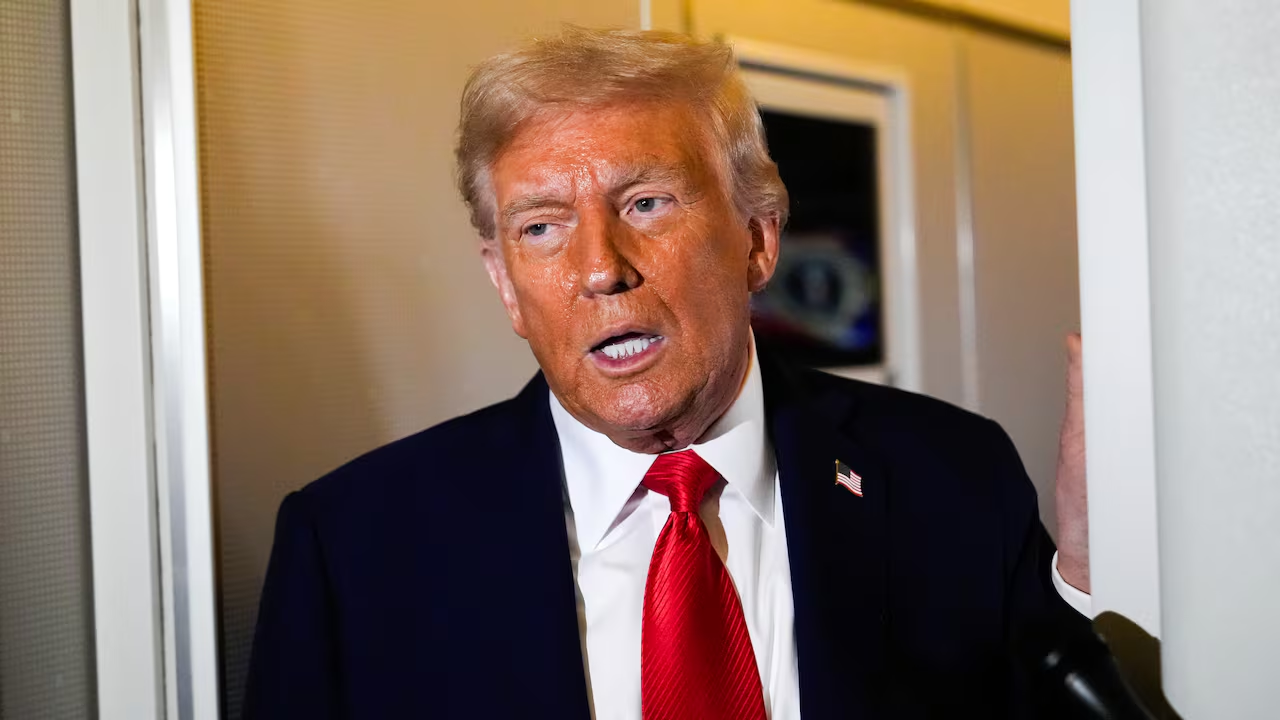Negotiations in Washington to avert a federal government shutdown have reached their most precarious stage yet, with tensions rising and both parties escalating their public accusations. What began as routine budget discussions has rapidly evolved into a high-stakes political showdown, drawing national scrutiny and igniting fierce partisan debate across Capitol Hill.
The bipartisan talks, originally expected to continue steadily through the week, began unraveling after a series of heated moments behind closed doors. Both Republican and Democratic leaders emerged accusing the other side of obstruction, leaving hopes for a last-minute compromise increasingly uncertain.
Vance Warns Shutdown “Increasingly Likely”
Vice President J.D. Vance provided one of the bluntest assessments so far, telling reporters that the likelihood of a shutdown was growing unless negotiators “make swift and meaningful progress.” His comments reflected rising frustration inside the administration, which has repeatedly emphasized the importance of avoiding unnecessary disruptions to federal operations.
White House officials have maintained that they are willing to negotiate but stress that Republicans must meet them halfway.
Speaker Johnson Defends GOP Position
House Speaker Mike Johnson has been equally outspoken, insisting that Republicans are pushing for “reasonable and responsible” reforms to address what they describe as dangerously excessive federal spending. He argued that the government cannot continue on its current fiscal trajectory and that Republicans would not support budgets lacking long-term discipline.
Johnson and his caucus have accused Democrats of refusing to meaningfully engage on cost-cutting proposals—an allegation Democratic leaders strongly deny.
Democrats Say GOP Is Forcing a Crisis
Democratic leadership has countered aggressively, calling the Republican approach inflexible and “unrealistic.” They argue they have offered multiple avenues to keep the government open, only for Republicans to reject them. In their view, the blame for any shutdown rests squarely with GOP leadership.
Several Democratic lawmakers insisted that Republicans are using the threat of a shutdown as a bargaining tactic, a claim Republicans say is unfounded.
Both Sides Harden Their Messaging
As negotiations faltered, both parties moved into full public-relations mode:
-
Republicans accused Democrats of political brinkmanship and prioritizing partisan advantage over fiscal responsibility.
-
Democrats accused Republicans of mismanaging the process and steering the country toward avoidable disruption.
Analysts note that these exchanges are predictable during divided government, though the increasingly sharp tone suggests deeper ideological rifts over federal priorities.
Behind the Scenes: Staffers Search for a Breakthrough
Despite the public standoff, staff on both sides continued meeting privately in hopes of finding a compromise. Conversations reportedly focused on:
-
Stopgap funding bills
-
Adjusted budget baselines
-
Narrowed policy riders
-
Temporary extensions to buy more negotiating time
Still, those efforts have produced no breakthrough, and observers describe the atmosphere as tense but not beyond repair. Historically, many budget deals have come together only within hours—or minutes—of a looming deadline.
Growing Public and Economic Anxiety
As Washington wrestles, concerns outside the Capitol are rising.
Federal employees and military service members are bracing for potential paycheck delays. Families are questioning what a shutdown could mean for national parks, airport operations, and other essential services. Contractors, nonprofits, and small businesses that rely on federal partnerships warn that even short funding lapses disrupt operations and cash flow.
Economists caution that a shutdown, even a brief one, could send ripples through the broader economy—weakening consumer confidence, pausing federal projects, and deepening public skepticism about the government’s ability to manage basic responsibilities.
Local Leaders and Advocacy Groups Call for Action
Community organizations and advocacy networks have urged lawmakers to move quickly, warning that prolonged funding instability could:
-
Interrupt social programs
-
Delay housing and nutrition services
-
Impact vulnerable populations
-
Stall essential state–federal partnerships
They argue that the human consequences of a shutdown extend well beyond the political theater unfolding in Washington.
Parties Accuse Each Other of Unreasonable Demands
Speaker Johnson’s office stressed that Republicans were willing to negotiate but would not sign off on spending levels they deem excessive or “fiscally dangerous.” He urged Democrats to return to the table with what he called “serious reform proposals.”
Democratic leaders countered by arguing that GOP demands would impose deep cuts on essential services, including programs supporting working families, medical research, and public safety.
The ongoing stalemate, analysts say, underscores broader philosophical divides:
-
Republicans prioritize debt reduction and spending restraint.
-
Democrats prioritize program stability and protecting federal services.
Late-Night Statements Signal Ongoing Work
Despite the combative tone, both parties have signaled that negotiations will continue. Senior aides and budget strategists from both sides worked late into the night on new proposal drafts, hoping to identify a path forward before government operations are disrupted.
Media coverage has intensified, with constant updates on cable news and political talk programs examining the negotiations and their electoral stakes.
Frustration Mounts Among Voters
Public frustration with the standoff is growing, especially among Americans who have seen similar budget crises unfold repeatedly in recent years. Constituents across the political spectrum have voiced irritation that Washington allowed routine funding discussions to escalate into another national concern.
Many voters question why bipartisan cooperation remains so elusive, especially when basic government functions are on the line.
A Deadline Approaches — and Uncertainty Rises
With the shutdown deadline fast approaching, federal agencies are preparing contingency plans. Departments have begun alerting employees about which operations may continue and which could pause.
Even so, lawmakers from both parties insist a shutdown is not inevitable—if the other side shows flexibility.
Negotiations remain fluid, proposals continue circulating, and both sides appear keenly aware of the political and economic consequences of failure.
For now, the nation waits as Washington races against the clock. Whether the government remains open depends entirely on whether leaders can bridge their differences in the critical final hours.

Emily Johnson is a critically acclaimed essayist and novelist known for her thought-provoking works centered on feminism, women’s rights, and modern relationships. Born and raised in Portland, Oregon, Emily grew up with a deep love of books, often spending her afternoons at her local library. She went on to study literature and gender studies at UCLA, where she became deeply involved in activism and began publishing essays in campus journals. Her debut essay collection, Voices Unbound, struck a chord with readers nationwide for its fearless exploration of gender dynamics, identity, and the challenges faced by women in contemporary society. Emily later transitioned into fiction, writing novels that balance compelling storytelling with social commentary. Her protagonists are often strong, multidimensional women navigating love, ambition, and the struggles of everyday life, making her a favorite among readers who crave authentic, relatable narratives. Critics praise her ability to merge personal intimacy with universal themes. Off the page, Emily is an advocate for women in publishing, leading workshops that encourage young female writers to embrace their voices. She lives in Seattle with her partner and two rescue cats, where she continues to write, teach, and inspire a new generation of storytellers.









